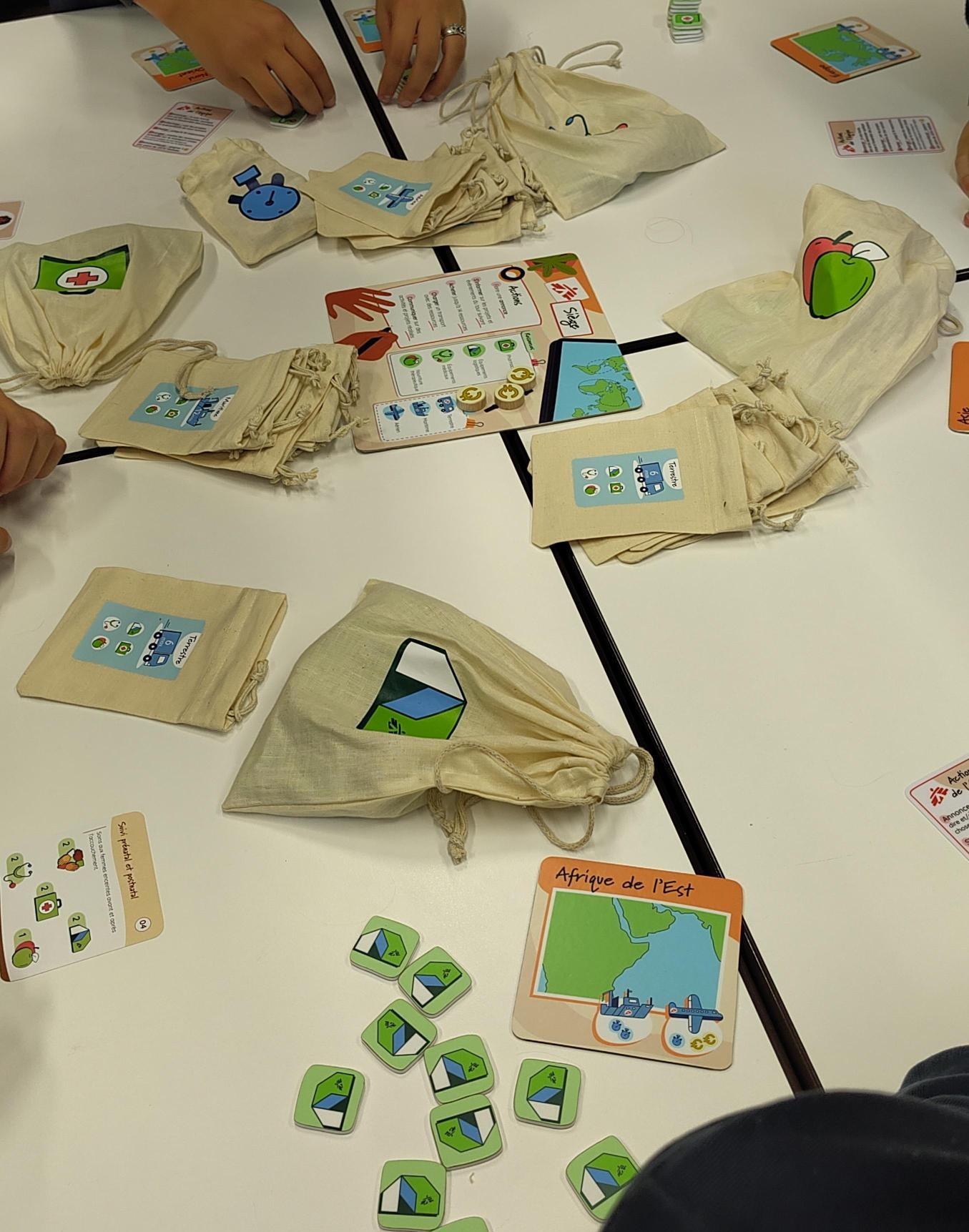Our teaching materials
Stop Ebola Escape Room – An immersive awareness-raising tool
The ‘Stop Ebola’ escape room developed by MSF is an immersive awareness-raising tool, designed like a changing room, which allows participants to experience the daily life of a medical team working in the context of an Ebola crisis, a highly infectious and very dangerous disease. In teams of up to six people, you work for MSF and are on a mission during an Ebola epidemic. Will you manage to open all the lockers in time and put on your personal protective equipment before intervening?
Missing Maps board game
This awareness-raising activity, offered at public events and in schools, aims to introduce people to humanitarian mapping and the Missing Maps project. Through an interactive game using a world map and magnets representing humanitarian crises or countries, the public – especially young people – can learn about these issues in a fun way. The board shows some of the places where MSF will be working in 2023, supported by Missing Maps' participatory mapping.
This activity helps people understand the essential role of maps in humanitarian aid and shows how everyone can contribute, even from a distance, by taking part in mapping sessions called Mapathons. It is therefore an accessible and engaging introduction to solidarity mapping.
Board game

MSF Luxembourg has developed Time Rush!, an educational workshop in the form of a collaborative board game whose aim is to demonstrate the importance of coordination between different departments (headquarters, operations) for the success of a humanitarian project. Students are divided into teams and must organise the supply of equipment needed to deploy an operation and carry out various related activities.
Using the game in schools or extracurricular settings allows students to tackle serious topics in a fun and stimulating way and to learn about how humanitarian operations are carried out. It also develops the solidarity and spirit of cooperation necessary for the smooth running of projects with a societal impact.
Time Rush! is now available. As of January 2026, six classes and 72 pupils have already taken part in this workshop.
Audiovisual content: exhibitions and films
MSF's media library is particularly extensive and contains a wealth of films – both short and feature-length – that provide a realistic and high-quality illustration of our work in a wide variety of countries and contexts. For example:
- “Titi - In cyclone's wake”: On the front line of climate change, Madagascar has been hit hard by successive cyclones. Titi, a nurse from Niger, joins MSF and reaches inaccessible rural communities to combat the alarming increase in child malnutrition rates.
- “Masafer Yatta, Forced From Home”: After two decades of legal battles, on 4 May 2022, the Israeli Supreme Court issued a ruling removing all legal obstacles to the forced displacement of Palestinian residents of Masafer Yatta, in the West Bank, to make way for a military zone. Since then, demolitions and military exercises by Israeli forces have increased. As a result, residents' freedom of movement, mental health and ability to access basic services, including medical care, have been severely affected.
- ‘Out of Libya: at what price?’: An overview of the difficulties faced by migrants stranded in Libya and their desire to flee, based on the testimonies of three people who were assisted by MSF in Libya and/or after leaving the country: Simon, Rosine and Even.
We also have exhibitions of photographs taken by professional photographers and/or by our teams working on our projects, in order to reflect the reality of our humanitarian work as closely as possible.
Among the themes covered are population displacement, healthcare provision, etc.
All of these tools can be used during our school visits. Would you like to receive one of our educational tools or have us visit your class?